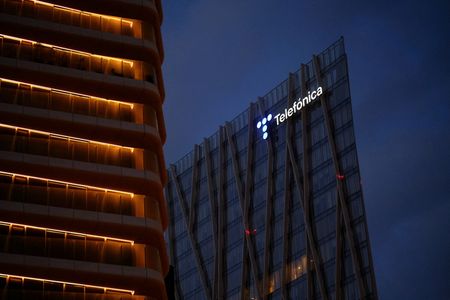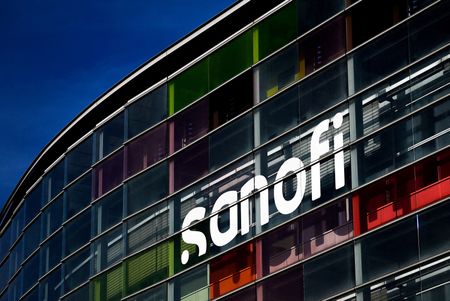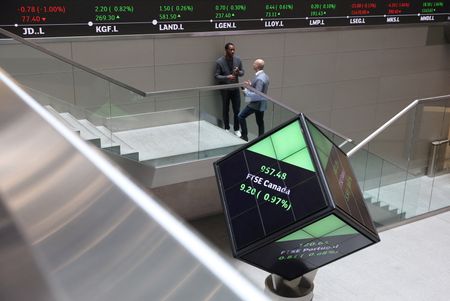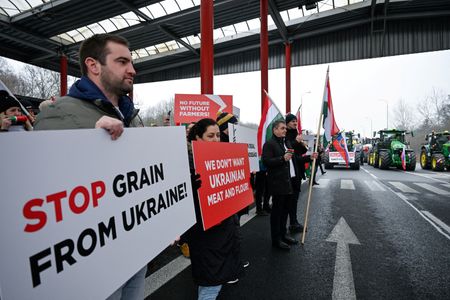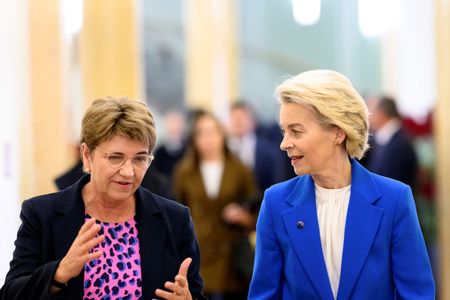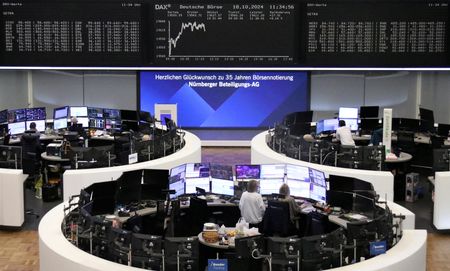By Luiza Ilie and Gergely Szakacs
BUCHAREST (Reuters) – Major foreign business chambers in Romania, including the U.S., UK and Germany, voiced concern on Wednesday about what they described as a rapid deterioration of the investment climate and the credibility of central Europe’s second-largest economy.
Romania’s politics have been in turmoil since hard-right presidential front-runner George Simion’s surge in a first-round vote led to the collapse of the pro-Western coalition government, and caused widespread concern about Romania’s already strained finances.
The leu fell sharply, while local currency bonds sold off last week amid rising uncertainty about how Romania will rein in the European Union’s highest budget gap and stave off a credit rating downgrade from the lowest rung of investment grade.
The European Commission told Reuters it was in close contact with Romanian authorities to ensure Bucharest takes additional measures needed to stick to its deficit-cutting plan submitted to Brussels late last year.
“This would, over the medium-term, credibly put Romanian government finances on a sustainable trajectory,” it said in an emailed response. Romania’s budget deficit surged to 9.3% of output last year, nearly double the government’s target.
With a decisive run-off due on Sunday and a poll showing Simion and centrist Bucharest mayor Nicusor Dan running neck-and-neck, the business chambers said political decisions must be stable and coherent to keep Romania on its Euro-Atlantic path.
“The Romanian business sector represented by our organizations underlines jointly the accelerating deterioration of the business environment and the erosion of Romania’s credibility,” a joint statement by eight investor associations and business chambers said.
A Simion victory could isolate Romania, erode private investment and destabilise NATO’s eastern flank, where Bucharest plays a key role in providing logistical support to Ukraine as it fights a three-year-old Russian invasion, political observers say.
Simion has said that, if elected, he would nationalise companies that exploit Romania’s natural resources and appoint Calin Georgescu, the far-right Russia-friendly front-runner of a presidential election annulled in December, as prime minister.
Both Simion and independent rival Dan have ruled out tax hikes to fix the country’s finances despite Romania’s budget revenue being among the lowest in the 27-member EU as a percentage of national output.
Bank of America economists said Simion’s victory could delay the formation of a new government as he would likely aim to include his far-right AUR party in any new cabinet to emerge after the ballot.
“The fiscal and political timelines are not aligned,” it said in a note.
“The (European Commission) require budget plans ideally before end-May, and latest by early July to make a decision, while government formation may happen later. So negative headlines on EU funds could come in June-July.”
The head of the country’s largest investors’ group told Reuters last week that a deepening political crisis raised the risk of pushing the country into recession.
(Reporting by Luiza Ilie and Gergely Szakacs. Editing by Toby Chopra and Mark Potter)

